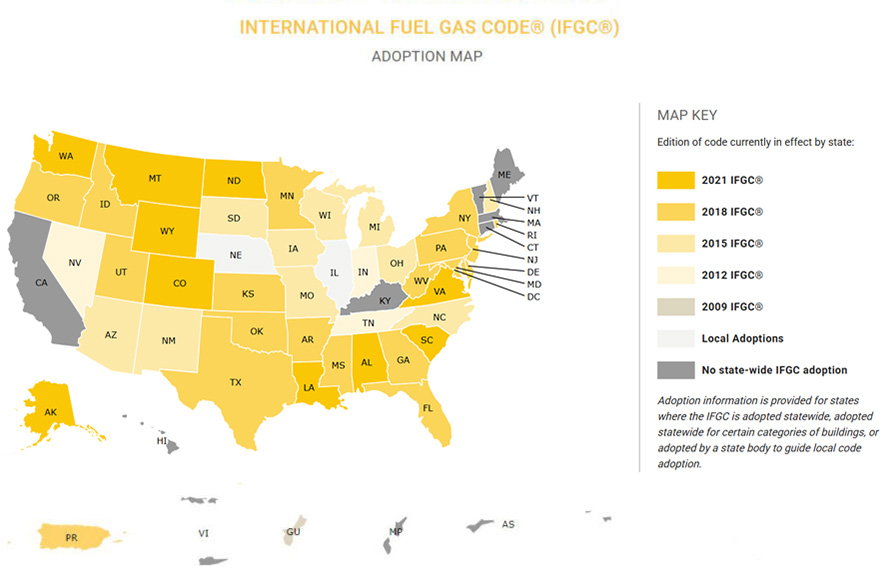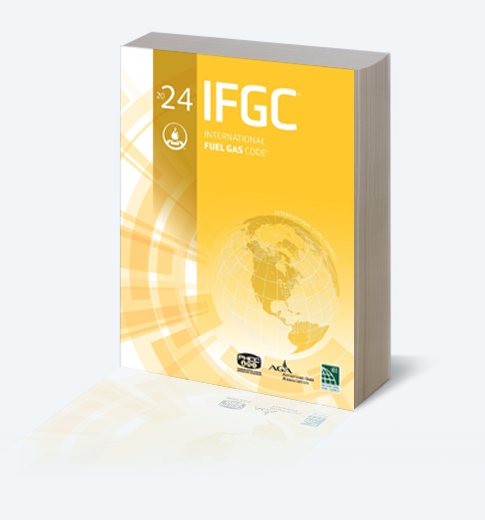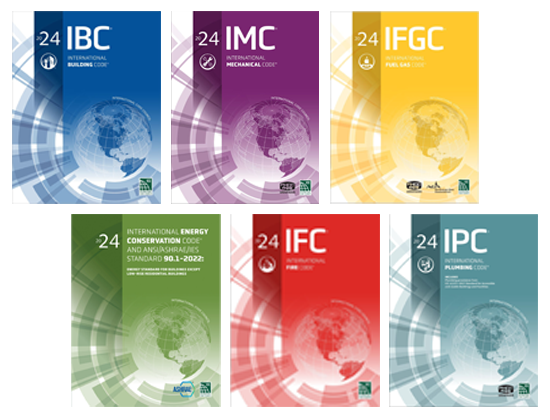
The IFGC is the most widely adopted fuel gas code across the United States. The IFGC is currently adopted in 41 states across the U.S. and is also adopted in the District of Columbia, Puerto Rico, and Guam. Approximately 280 million people, or 82% of the US population, live in areas that have adopted the IFGC.
The IFGC is also used in Pakistan and other countries around the world.
The IFGC is a vital part of a complete building safety system, providing an integral component necessary to provide an acceptable level of safety and to protect life and property from the potential dangers associated with the storage, distribution and usage of fuel
gases and the byproducts of combustion of such fuels.
The I-Codes, when adopted as a family of codes, correlating as they do, provide a consistent system of regulations that designers, builders, and regulators can rely on,
across city, county, or state lines.
It is for this reason that FEMA’s “Consensus-based Codes, Specifications and Standards for Public Assistance Policy” requires that as a condition of grant funding, the I-Codes be incorporated into the design and construction for repair and replacement of disaster-damaged facilities. FEMA requires construction not only meet the latest editions of the IBC, IPC, IMC, IECC, and IFC, but also the IFGC.
The adoption of building codes, including the fuel gas code, is not just about the codes. Technical support, in the form of expert advice, code opinions, and technical resources are some of the most sought-after services following adoption of a code.
The Code Council’s expert technical staff provides advice, code opinions, and resources to our more than 60,000 members as a complimentary benefit.
We have several resources, including commentaries and study companions, to support our members and industry professionals in achieving a better understanding of the code and implementing inspection programs.
Numerous training resources are available on the IFGC including face to face training and webinars which are led by qualified instructors and fuel gas industry leaders.
The Code Council also has a world class digital platform where codes, industry standards and resources can be accessed from one’s computer, tablet, or phone.
The IFGC is developed through a governmental consensus process
that involves many interest groups including public safety officials, contractors, manufacturers, standards development organizations, academia, consumers and many more;
cannot be influenced by vested financial interests;
and is conducted every three years.








